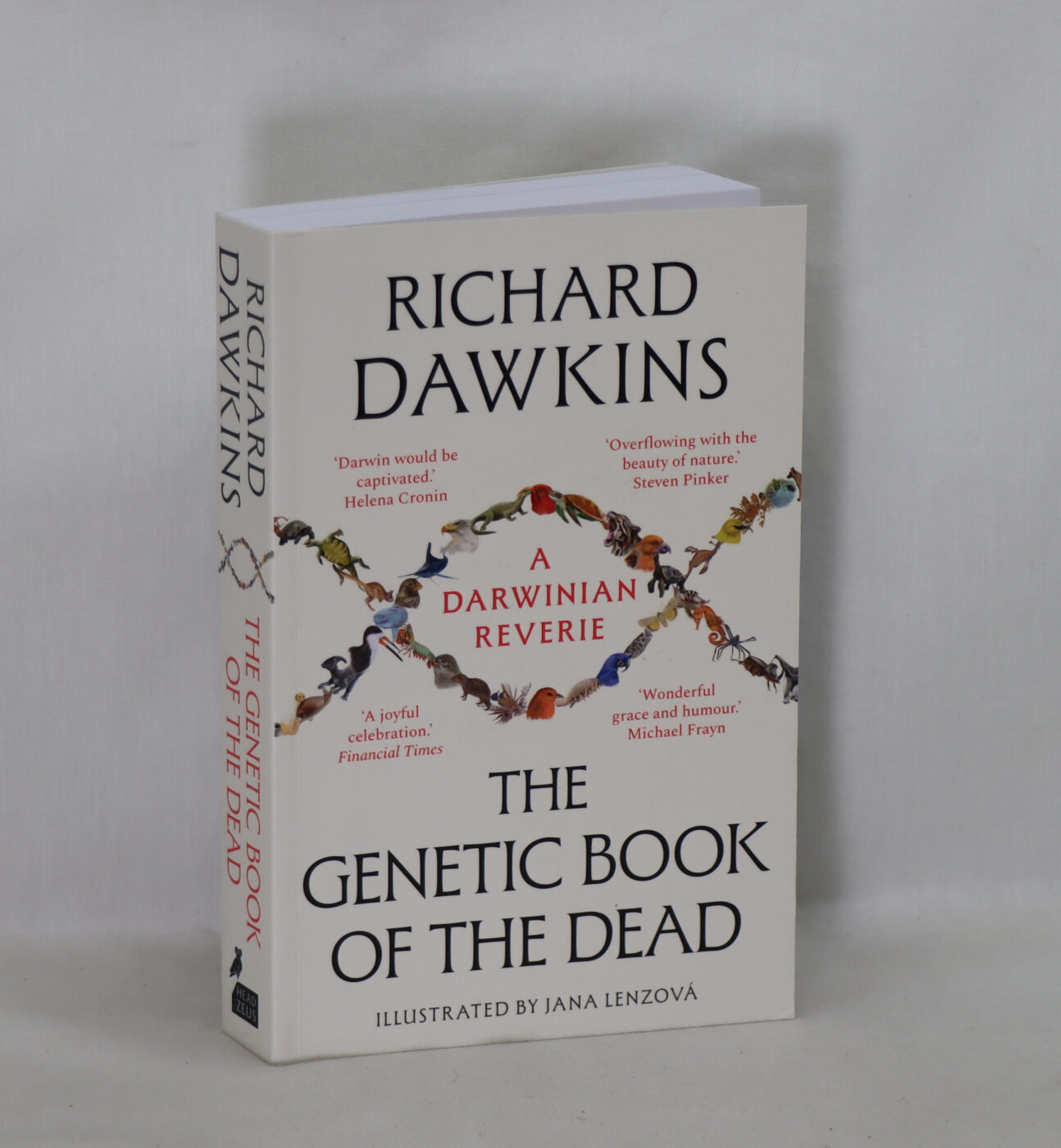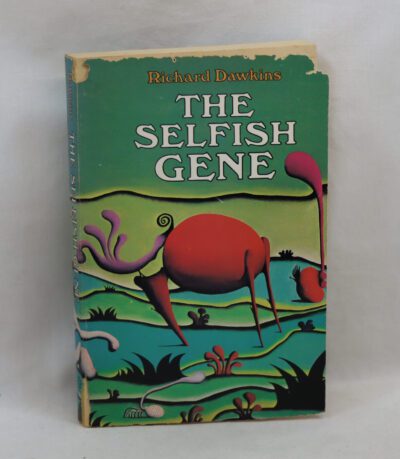The Genetic Book of the Dead.
By Richard Dawkins
ISBN: 9780300278095
Printed: 2024
Publisher: Head of Zeus. London
| Dimensions | 13 × 20 × 2.5 cm |
|---|---|
| Language |
Language: English
Size (cminches): 13 x 20 x 2.5
Condition: As new (See explanation of ratings)
Item information
Description
Paperback. White cover with black title.
We provide an in-depth photographic presentation of this item to stimulate your feeling and touch. More traditional book descriptions are immediately available
- THE TIMES BEST SCIENCE BOOK OF 2024
- GUARDIAN BEST IDEAS BOOKS OF 2024
- ECONOMIST BEST BOOKS OF 2024
- FINANCIAL TIMES BEST BOOKS OF 2024
From one of the world’s great science writers, a book that explores the deepest principles of evolutionary history.
In this groundbreaking new approach to the evolution of all life, Richard Dawkins shows how the body, behaviour, and genes of every living creature can be read as a book – an archive of the worlds of its ancestors. A perfectly camouflaged desert lizard has a desiccated landscape of sand and stones ‘painted’ on its back. Its skin can be read as a description of ancient deserts in which its ancestors survived – and, before that, of the worlds of its more remote ancestors: a genetic book of the dead. But such descriptions are more than skin-deep. The fine chisels of Darwinian natural selection carve their way through the very warp and woof of the body, into every biochemical nook and corner, into every cell of every living creature. A zoologist of the future, presented with a hitherto-unknown animal, will be able to reconstruct the worlds that shaped its ancestors, to read its unique ‘book of the dead’. The book is filled with fascinating examples of the power of Darwinian natural selection to build exquisite perfection, paradoxically accompanied by what look like gross blunders. Along the way, Dawkins dismantles influential criticisms of the ‘gene’s-eye-view’ of life. And, to end with a provocative sting in the tail, the author asks there is a sense in which all our ‘own’ genes can be seen as a gigantic colony of cooperating viruses?
From the author of The Selfish Gene and The Ancestor’s Tale comes a revolutionary, richly illustrated book that unlocks the door to an ancient past, seen through wholly new eyes.
Review: Immediately engaging and full of learning opportunities about the diversity of life on our planet, Dawkins new title presents within its opening pages a new way to comprehend the dynamics of evolution, and proceeds to imagine a future scientist with the tools to ‘reverse engineer’ the complex histories embedded within all organic life, the layers of development each atop the other that record a response to an earlier environment and/or circumstance. Reading is ongoing but I’m enjoying learning about animals I’d never heard of as well as new things about those I have. Dawkins’ passion for the wonder of the natural world is enthusiastic and infectious.
Richard Dawkins (born 26 March 1941) is a British evolutionary biologist, zoologist, science communicator and author. He is an emeritus fellow of New College, Oxford, and was Simonyi Professor for the Public Understanding of Science at the University of Oxford from 1995 to 2008, and is on the advisory board of the University of Austin. His book The Selfish Gene (1976) popularised the gene-centred view of evolution and coined the word meme. Dawkins has won several academic and writing awards.
A vocal atheist, Dawkins is known for his criticism of creationism and intelligent design. He wrote The Blind Watchmaker (1986), in which he argues against the watchmaker analogy, an argument for the existence of a creator deity based upon the complexity of living organisms. Instead, he describes evolutionary processes as analogous to a blind watchmaker, in that reproduction, mutation, and natural selection are unguided by any sentient designer. In his book The God Delusion (2006) he argues that a supernatural creator almost certainly does not exist and calls religious faith a delusion. The Sunday Times described the book as one of the 12 most influential books since World War II. He founded the Richard Dawkins Foundation for Reason and Science in 2006. Dawkins has published two volumes of memoirs, An Appetite for Wonder (2013) and Brief Candle in the Dark (2015).
Want to know more about this item?

Share this Page with a friend










